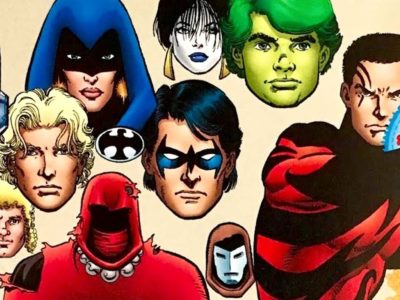
[ad_1]
The DC hero known as the Human Target shares many similarities with a mercenary who exists both in the MCU and Marvel Comics, the Taskmaster.
In light of an upcoming new comic book series, now is the perfect time to revisit Christopher Chance, aka the Human Target. Chance is a private detective and bodyguard for hire who has the ability to impersonate anyone whose life is in danger. He impersonates them so thoroughly that it is almost impossible to distinguish between the fake and the true target. Unfortunately, this has also left Christopher with a very shaky grasp on his own identity, very much like Taskmaster from the Marvel Universe.
First debuting in Action Comics #419 by Len Wein, Carmine Infantino and Dick Giordano, Christopher Chance gained a reason to fight crime at a young age. His father Philip owed money to a loan shark. When he was unable to repay the money, a hitman was hired to killed Philip. When the assassin entered their home, Christopher tried to stop the assailant, but was brushed aside, helpless to do anything but watch as his father was murdered.
This had a profound impact on Christopher, who vowed to never let anyone suffer the way his father did if he had the power to stop it. The experience also left Christopher unable to feel fear, which would come in handy for his future endeavors.
He began training extensively in martial arts, weaponry, and impersonation. When he was ready, Christopher started a business where he would impersonate people whose lives were in danger, putting himself in harm’s way to protect them. He had become the Human Target, able to impersonate anyone so thoroughly that even professional assassins were fooled. He even worked alongside Batman, impersonating Bruce Wayne long enough for the two to team up and defeat Deadshot.
However, this lifestyle came with consequences for Christopher’s sense of self. He became addicted to assuming the lives of his clients, even the less savory ones. He would immerse himself so deeply into their personalities that he sometimes forgot his own, leaving him unable to distinguish between what feelings and thoughts belonged to him and which ones were merely what his clients would feel.
This had the unintended consequence of affecting his ability to form meaningful relationships. He couldn’t tell if the way he felt towards an individual were his own feelings or someone else’s. So with each person Christopher learned to impersonate, his ability to separate himself from his client became less certain. This loss of self is very similar to what Taskmaster experiences whenever he uses his photographic reflexes to gain new skills and abilities.
As useful as his talent is, it comes with a cost. Whenever Taskmaster learns something new, an implicit memory, he loses more explicit memories, specifically his personal experiences. So every time he acquires a new skill his own personal history becomes less clear, making it hard to determine if his original self would have even wanted this life.
He shares this loss of self with Human Target. Both are heroic and villainous sides of the same coin, people who can mimic others so thoroughly that it’s as if they are that person, but at the cost of their own personal identity withering away as they become more immersed in the lives they copy. The only difference between the two is that Taskmaster has no choice in the matter when this happens. Every time he uses his gift he automatically loses part of his memory.
Christopher on the other hand retains his memories, but it becomes difficult for him to distinguish between what belongs to him and what he took from someone else.
About The Author
[ad_2]






